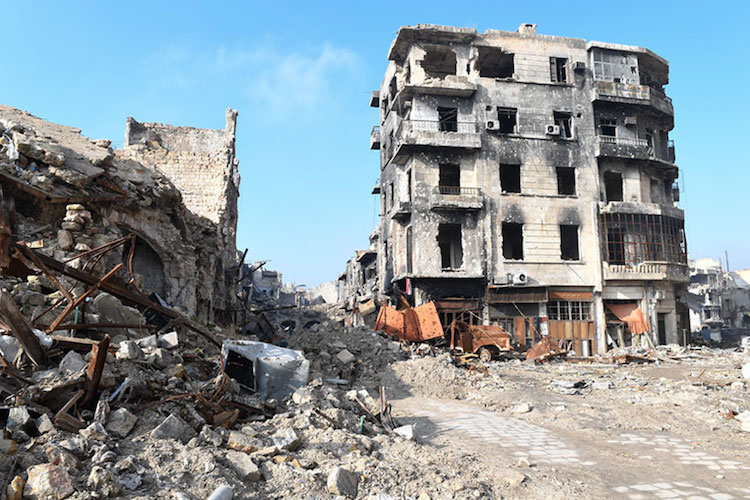
By António Guterres, UN Secretary-General
Following are extensive excerpts from UN Secretary-General António Guterres’ remarks at open debate of the Security Council on ‘Addressing complex contemporary challenges to international peace and security‘ on December 20, 2017 during Japan’s presidency of the Council for the month. – The Editor
UNITED NATIONS (IDN-INPS) – I would like to make three main points today. First, we are seeing not only a quantitative but also a qualitative change in threats to international peace and security. The perils of nuclear weapons are again front and centre, with tensions higher than they have been since the end of the Cold War.
Climate change has emerged as a threat multiplier. Water scarcity is a growing concern, as demand for freshwater is projected to grow by more than 40 per cent by the middle of the century. Inequality and exclusion feed frustration and marginalization.
Cybersecurity dangers are escalating, as some of the same advances in technology that have generated so many gains have also made it easier for extremists to communicate, broadcast distorted narratives of grievance, recruit followers and exploit people.
The number of armed conflicts has declined over the long-term, but in the Middle East and parts of Africa, conflicts have surged. Conflicts are becoming more intractable. They are longer – more than 20 years on average – meaning that the people they displace are spending ever increasing amounts of time away from their homes and communities.
They are more complex, as armed groups compete for control over state institutions, natural resources and territory – and as extremist groups with absolutist demands leave little room for diplomacy. We are seeing a multiplication of political factions and non-state armed groups – with hundreds of armed groups in Syria alone.
There is also an increase in the regionalization and internationalization of conflicts. External military and financial support to conflict parties prolongs civil wars – and fuels wider tensions as local fights become proxies for larger rivalries. Conflicts are more linked with each other, and with the worldwide threat of terrorism. And transnational drug smugglers and human traffickers perpetuate the chaos and prey on refugees and migrants.
Second, the changing nature of conflict means rethinking our approaches – both how we work and how we work with others. Our efforts must be coherent, coordinated and context-specific. We must work across pillars, and across the peace continuum, towards integrated action.
It was with this goal in mind that I initiated three inter-linked reform efforts aimed at repositioning the UN development system, streamlining our internal management and strengthening the Secretariat’s peace and security architecture.
I have also sought to forge closer links with regional partners, including the African Union, the European Union and others. The Joint Force created by the G5 Sahel Member States is an important step in this regard, as is the UN-AU framework agreement earlier this year.
Third, prevention must be at the centre of everything we do. It is better to prevent conflict than to manage it. It avoids tragic human suffering and it even saves money. Though hard to quantify and typically undertaken far from the media spotlight, prevention is a sound investment that brings ample, visible dividends.
Development is one of our best instruments of prevention, and the 2030 Agenda gives us enormous potential. Development is an objective in its own right, and should not be mis-used in pursuit of other aims. But the steps we take towards achieving 17 Sustainable Development Goals will also help build peaceful societies.
Respect for all human rights – not only civil and political, but also economic, social and cultural – is an essential element of prevention. In the lead-up to the outbreak of widespread violence, we often see increases in repression, the closing of space for civil society and the rise of sectarianism. We must invest in social cohesion, so that all people feel they have a stake in society.
We also know that gender equality is closely linked with resilience, and that women’s participation is crucial to success, from conflict prevention to peacemaking and sustaining peace.
Where women are empowered, societies flourish and peace processes have a better chance of taking hold. We must also do more to address the systematic violence faced by women before, during and after conflict, and to pursue justice for perpetrators as an essential part of post-conflict healing and recovery.
Prevention also includes preventive diplomacy – efforts to respond promptly to signs of tension and to forge political solutions. The newly established High-level Advisory Board on Mediation has met for the first time to assess opportunities for engagement, and I expect it to begin its first formal, but discreet, undertaking soon. My own good offices are of course available to you at all times.
The concept of human security is a useful frame of reference for this work, and I thank Japan for its longstanding advocacy. Human security is people-centred and holistic; it stresses the need to act early and prioritize the most vulnerable.
These must all be touchstones for our work. I welcome the efforts by the Council to explore new ways to monitor and address the risks of conflict. Let us work together to enhance the Council’s focus on emerging situations, expand the toolbox, increase resources for prevention, and be more systematic in avoiding conflict and sustaining peace.
Finally, let me emphasize the need for unity on the part of the Security Council. Without it, the parties to conflict may take more inflexible and intransigent positions, and the drivers of conflict will push situations to the point of no return, again and again. But with unity, we can advance security and well-being for all. [IDN-InDepthNews – 20 December 2017]
Photo: The scale of destruction in Aleppo is massive and heavy equipment is urgently needed to remove debris. Credit: UNHCR/Bassam Diab
IDN is the flagship agency of the International Press Syndicate
Facebook.com/IDN.GoingDeeper – twitter.com/InDepthNews











